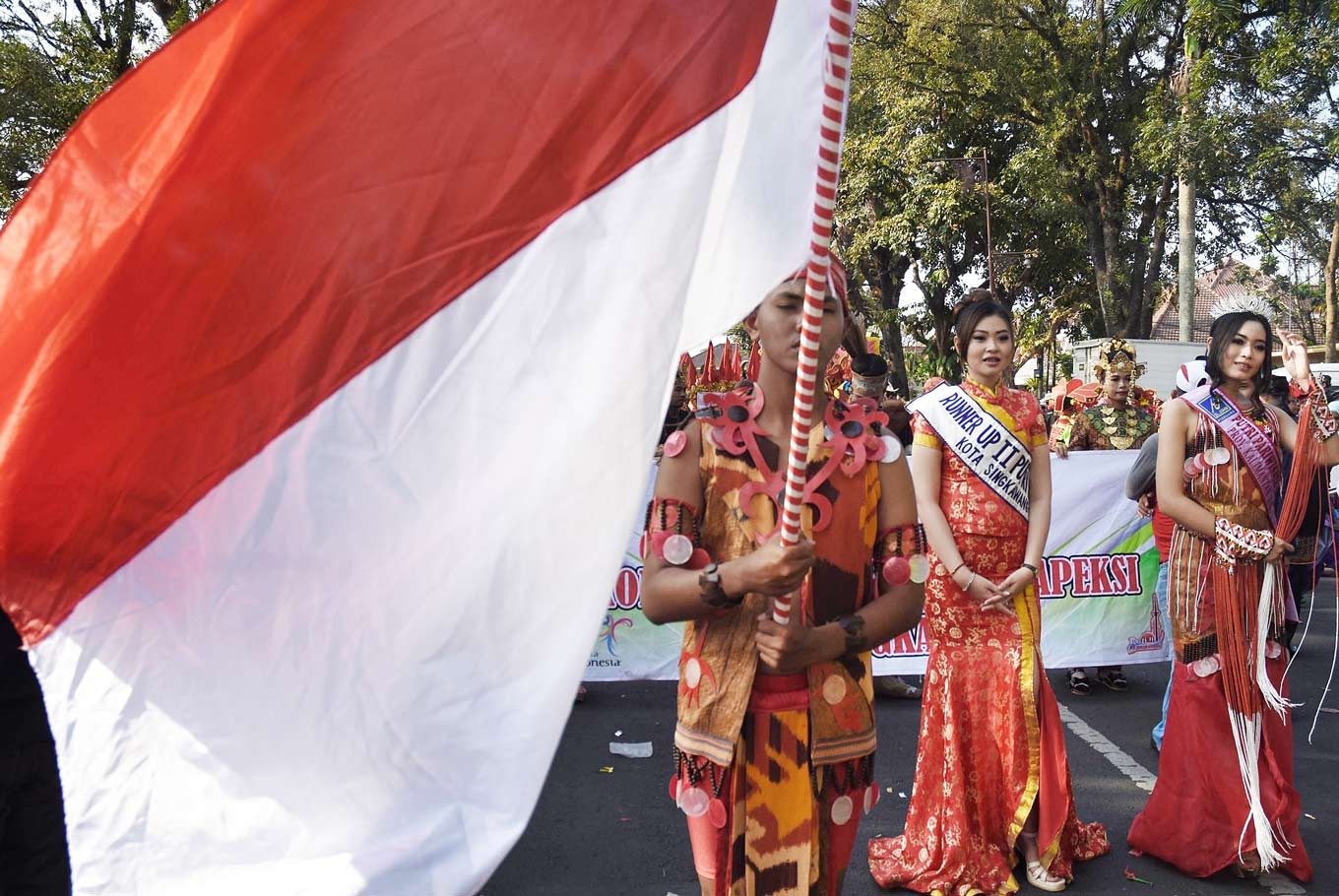Popular Reads
Top Results
Can't find what you're looking for?
View all search resultsPopular Reads
Top Results
Can't find what you're looking for?
View all search resultsHouse pushed to pass indigenous peoples bill
The recently passed Job Creation Law and Mining Law revision are deemed harmful for indigenous communities across Indonesia.
Change text size
Gift Premium Articles
to Anyone
C
ivil rights groups and indigenous communities are calling on the House of Representatives to pass the indigenous peoples bill that will provide recognition of their rights and customary law in certain matters, such as the management of natural resources and the distribution of inherited land.
They also slammed the legislative body for passing the Job Creation Law and revising the Mining Law, both of which they deem detrimental to indigenous communities across the country.
Passing the indigenous peoples bill is important for the country amid a lack of regulations that define and protect indigenous rights, according to the Association for Community-Based and Ecological Legal Reform (HuMa).
“There are some [bylaws on indigenous rights], but they still cover only a limited number of issues about natural resources,” HuMa executive coordinator Agung Wibowo said in an online discussion on Jan. 19.
Once passed, a law on indigenous people would require the government to recognize indigenous peoples’ rights in managing their own affairs according to their customs, he added. The law would also protect the communities, which are commonly deemed as marginalized groups, against any party trying to undermine them.
I Gusti Agung Made Wardhana, an environmental law expert with Gadjah Mada University in Yogyakarta, said the passing of Job Creation Law and the Mining Law revision would only benefit large corporations and potentially harm indigenous people.
He highlighted a provision on the legal mining territory, which assumed that all lands across the archipelago can be opened as new mining territory.
“For indigenous people who are legally and politically marginalized, this provision can be used by miners to easily take over indigenous lands for mining activities,” Wardhana said.
He also criticized a provision on the environmental impact analysis (Amdal) in the Job Creation Law, which only allows the document to be legally challenged by people directly affected by the business activities.
The provision potentially harmed indigenous communities, who often enlisted the help of civil groups and academics in articulating their interests as well as filing a legal challenge against companies, Wardhana went on to say.
Devi Anggraini, the head of the women’s branch of the Alliance of Indigenous People of the Archipelago’s (AMAN), said indigenous women were in a particularly weak position.
She revealed that indigenous women were often forced to become prostitutes in concession areas or married with people from outside their community, as their families often saw them as financial burdens.
Apart from the indigenous people bill, Devi said, it would be important for the House to pass the sexual violence bill. “The indigenous peoples bill will protect their basic rights and identity as members of such community. Meanwhile, the sexual violence bill will protect the women from tradition-based violence,” she added.
The indigenous peoples bill, first introduced as the indigenous peoples right protection in 2012, had only made its way into the national legislation program (Prolegnas) in 2017. But its deliberation stagnated. The House included the bill in its 2021 Prolegnas list on Jan. 14.
Meanwhile, the sexual violence bill had been on and off the table at the house since it was first proposed to lawmakers by the National Commission on Violence Against Women in 2012. The House dropped it from its priority list in July last year, citing scheduling difficulties for deliberation due to the COVID-19 pandemic. The bill has also been included in the 2021 Prolegnas list.
House legislation body member Taufik Basari of the NasDem Party said that the body had agreed to continue the deliberation of the indigenous peoples bill. “However, House leaders have yet to bring the bill up to the plenary meeting.”
He said he understood the general public’s criticism of the House’s decision to pass the Job Creation Law and the Mining Law revision to promote the ease of business at the expense of indigenous people.
“That’s why we need to provide protection [to indigenous communities] and make sure that the development would not affect them badly.”










